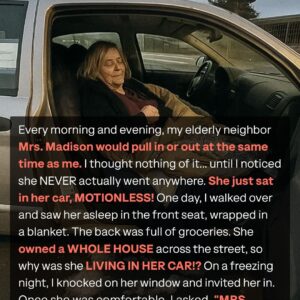It was an ordinary morning in Australia when Ryan O’Donnell, a devoted father of two, decided to take his children to the grocery store. His plan was simple: pick up the weekly essentials, keep the kids entertained, and get home in time for lunch. He had no idea that a small moment inside that supermarket would soon touch the hearts of millions of people around the world.
After strolling through the aisles and letting his kids help choose cereal and snacks, Ryan joined the checkout line. In front of them stood an elderly woman, frail but dignified, carefully placing her few groceries on the conveyor belt. She clutched her bank card in one hand, her face already strained with worry as if she feared what might happen next.
When the cashier told her the total, she slid her card into the machine and waited. A beep sounded—declined. She tried again. Declined. The line grew quiet, and Ryan could feel the tension rising. The woman’s hands trembled as she apologized to the cashier, her voice breaking. She tried once more, but it was no use. She didn’t have enough money.
Her shoulders slumped. Embarrassment washed over her face, and she muttered that she would put some items back. The cashier began to set the groceries aside, but before she could, Ryan stepped forward.
“How much does it come to?” he asked gently.
“Forty-four dollars,” the cashier replied.
Ryan didn’t hesitate. He pulled a fifty-dollar note from his wallet, handed it across the counter, and said, “Here—please take care of it.”
The old woman turned to him, her eyes wide with disbelief. “I… I don’t know what to say,” she whispered, tears filling her eyes. “How can I ever repay you?”
Ryan smiled kindly. “You don’t owe me anything. Just have a good day.”
The children at his side looked up at their father, their faces glowing with pride. They had just watched him embody the very lesson he often taught them at home—that helping others, especially when they’re struggling, is always the right thing to do.
Another shopper in line, moved by the scene, quickly snapped a photo and later shared it on social media with a short post about what had happened. Within hours, the story spread. By the end of the week, it had been shared thousands of times, with people around the world praising Ryan for his simple but powerful act of compassion.
Local news outlets soon picked up the story. When asked why he chose to step in, Ryan’s answer was modest: “I just did what my parents taught me to do—help others when you can. It’s as simple as that.”
Messages poured in from strangers who said his action inspired them to look for ways to help others in their daily lives. Some admitted they had gone out that very day and paid for someone’s coffee, someone’s bus fare, or a stranger’s meal because Ryan’s gesture reminded them that kindness can start small but ripple outward in ways we might never fully see.
The elderly woman’s name was never made public, but many who read the story said they saw their own mothers, grandmothers, or neighbors in her. They imagined how it must have felt to stand there, humiliated by circumstances, only to be lifted up by the unexpected generosity of a stranger.
Ryan never sought recognition, yet his moment in that supermarket became a global reminder of humanity at its best. He showed that true greatness isn’t measured by wealth, fame, or power—it’s revealed in the quiet decisions we make when no one expects us to act.
That day, with his two children watching closely, Ryan didn’t just pay for someone’s groceries. He gave the world a lesson in empathy, humility, and love. And in doing so, he inspired countless others to pass that kindness on.





